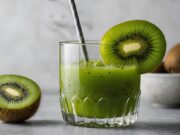- Eggs are a good source of protein that’s easy to absorb, and they also provide many other nutrients. One medium egg has around 6 g of protein.
- Milk is a dairy food that is high in protein and calcium. Chocolate milk is a great post-workout drink that can help with muscle recovery. One cup (244 g) of whole milk has 8 g of protein.
- Yogurt is another dairy product that is rich in protein and probiotics. Greek yogurt is especially high in protein and can be used in various recipes. One cup (227 g) of plain Greek yogurt has 23 g of protein.
- Chicken breast is an excellent choice for lean protein that can be cooked in many ways. It also provides several B vitamins and minerals. One half of a chicken breast (86 g) has 27 g of protein.
- Lean beef is a good source of protein and iron, which is important for red blood cell production. It can be used in dishes like burgers, tacos, or stir-fries. One 3-ounce (85 g) serving of lean beef has 22 g of protein.
- Fish is a high-protein food that also contains omega-3 fatty acids, which are beneficial for heart and brain health. Some examples of fish are salmon, tuna, cod, and sardines. One 3-ounce (85 g) serving of cooked salmon has 19 g of protein.
- Tofu is a plant-based protein that is made from soybeans. It can be used as a meat substitute or added to salads, soups, or stir-fries. It also contains calcium and iron. One half-cup (126 g) of firm tofu has 10 g of protein.
- Beans are another plant-based protein that are high in fiber and antioxidants. They can be eaten as a side dish or added to salads, soups, or casseroles. Some examples of beans are black beans, kidney beans, chickpeas, and lentils. One cup (172 g) of cooked black beans has 15 g of protein.
- Nuts are a nutritious snack that are high in protein and healthy fats. They also provide fiber, vitamin E, magnesium, and other minerals. Some examples of nuts are almonds, pistachios, cashews, and walnuts. One ounce (28 g) of almonds has 6 g of protein.
- Seeds are similar to nuts in terms of their protein and fat content. They also contain phytochemicals that have anti-inflammatory and antioxidant effects. Some examples of seeds are pumpkin seeds, sunflower seeds, chia seeds, and hemp seeds. One ounce (28 g) of pumpkin seeds has 9 g of protein.
Facebook Comments

































